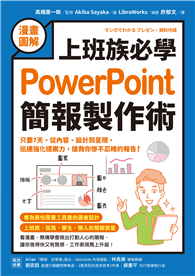A takedown of mental health misinformation and pseudoscience to educate and embolden readers who wish to make informed decisions about their mental health. According to some estimates, there are at least 600 different "brands" of psychotherapy, most of which are not supported by scientific research. There also exists countless unregulated providers of mental health services in the 5.6 trillion USD wellness industry and alternative medicine community who market themselves as "life coaches," "wellness consultants," and--depending on particular countries and jurisdictions--other various non-legally protected titles, such as "therapists," "psychotherapists," "counselors," and "practitioners." In a landscape where mental health concerns are at a fever pitch and anyone can call themselves a "therapist" without a license, the world of mental healthcare is very much caveat emptor: buyer beware.
In Mind the Science, Jonathan N. Stea provides a takedown of mental health misinformation and pseudoscience to educate and embolden readers who wish to make informed decisions about their mental health. Readers are empowered to protect themselves from mental health scams, charlatanry, and poor or misguided health practices that thrive in the multi-trillion-dollar wellness industry. The book begins by acquainting readers with the nature, evolution, and seduction of pseudoscience, coaching them on how to become science and mental health literate. Next, the book teaches readers how to spot misinformation and propaganda, shining a light on various pseudoscientific practices, showing the psychological reasons that leave us vulnerable to believing misinformation, and helping readers to develop a keen eye for the tactics and tropes that are used to push propaganda in the wellness and alternative medicine communities. The book concludes with strategies and solutions, showing the concepts and science behind evidence-based ways to improve mental health and teaches what to look for when seeking real professional help. Mind the Science is the self-defense shield that we direly need to protect us against the onslaught of bogus mental health treatments and products that have increasingly flooded social media, popular media, and the business of healthcare itself. By the end, readers will be better positioned to identify mental health misinformation, to steer clear of misguided and predatory practices, and to understand what mental health really means.| FindBook |
有 1 項符合
Mind the Science: Saving Your Mental Health from the Wellness Industry的圖書 |
 |
Mind the Science: Saving Your Mental Health from the Wellness Industry 作者:Stea 出版社:Oxford University Press, USA 出版日期:2024-09-03 語言:英文 規格:精裝 / 272頁 / 普通級/ 初版 |
| 圖書館借閱 |
| 國家圖書館 | 全國圖書書目資訊網 | 國立公共資訊圖書館 | 電子書服務平台 | MetaCat 跨館整合查詢 |
| 臺北市立圖書館 | 新北市立圖書館 | 基隆市公共圖書館 | 桃園市立圖書館 | 新竹縣公共圖書館 |
| 苗栗縣立圖書館 | 臺中市立圖書館 | 彰化縣公共圖書館 | 南投縣文化局 | 雲林縣公共圖書館 |
| 嘉義縣圖書館 | 臺南市立圖書館 | 高雄市立圖書館 | 屏東縣公共圖書館 | 宜蘭縣公共圖書館 |
| 花蓮縣文化局 | 臺東縣文化處 |
|
|
內容簡介
作者簡介
Jonathan N. Stea, PhD, RPsych, is a full-time practicing clinical psychologist and an adjunct assistant professor in the Department of Psychology at the University of Calgary. Clinically, he specializes in the assessment and treatment of concurrent addiction and mental disorders. He’s a two-time winner of the University of Calgary’s Award for Excellence in Clinical Supervision and co-editor of the book Investigating Clinical Psychology: Pseudoscience, Fringe Science, and Controversies. Stea has published extensively as a science communicator, with regular contributions to Scientific American and Psychology Today, among other outlets, and has appeared on numerous mainstream media television and radio shows, as well as podcasts. He has cultivated a strong social media presence in his quest to expose and protect against mental health misinformation and pseudoscience. You can follow him on X (formerly Twitter), Facebook, and Instagram.
The Un-Making of Them: Clinical Reflections on Boarding School Syndrome
The Un-Making of Them: Clinical Reflections on Boarding School Syndrome
The Hollow Half
Of My Own Making: How We Choose Who We Become
Trauma Proof: Healing, Attachment, and the Science of Prevention
Imagining the Post-Covid Workplace: Challenges and Opportunities
Imagining the Post-Covid Workplace: Challenges and Opportunities
Sexually and Gender Diverse Adolescents: Critical Perspectives on Risk and Resilience
Sexually and Gender Diverse Adolescents: Critical Perspectives on Risk and Resilience
|










